Eureka is now on Amazon Prime so it’s a good time to catch up if you haven’t watched it before. There’s 5 seasons which is a good blend of enough episodes to keep you entertained but not drown you in a show you never finish.
When it first aired, I watched the pilot and a few episodes and thought it was cute, mildly entertaining, though I wasn’t enthralled and stopped watching. So, give it a bit of a chance. I picked it back up about midway through season 2 and got really interested. I’m glad I did because the later seasons have some of my favorite moments of tv.
Eureka will surprise you… I think. Sometimes it’s really annoying. And sometimes it’s funny. It’s a pleasant sort of quirky, sweet and geeky and unexpected. Which quickly leads us to the first writing lesson:
Defy Your Genre
When you think of sci-fi you probably think of drama. Dark or dystopian. You don’t often think of comedy. Or at least I don’t.
Eureka is Mayberry with a sci-fi twist. It’s quirky. Sort of witty at times. They did these public service announcements – I can’t find the videos anywhere but they captured so much of the tone of the show.
Allison Blake: Is someone you know trying to create a black hole? Don’t be afraid to tell an adult. Because friends don’t let friends destroy reality.
And remember, Live Smart Eureka
Hi I’m Dr. Nathan Stark and I love radiation. But I also love my community. Which is why I leave my work at the office. Because nothing tears apart a community like mutation.
And remember, Live Smart Eureka
Henry: If you’re building a robot make sure to follow the directions carefully. Because today’s mistake is tomorrow’s unstoppable killing machine.
And remember, Live Smart Eureka
It’s a great reminder to tell the story you want the way you want. Make your epic fantasy a romantic comedy. Maybe your dystopian saga needs to be rooted in the supernatural instead of science. Or make anything a comedy. There’s funny moments in a lot of stories but not as many straight up comedies (or maybe I just don’t read them).
The point is, don’t let yourself be constrained by the expectations of whatever genre you’re working in. Let yourself have some fun with it.
The Power of ‘What If’
Another day and time, I’d totally roll my eyes at this lesson. I even had a book in college on writing called “What If” that I thought was lame. Probably because I struggle with plotting so the idea of easily or casually imagining ‘what if’ seems foreign to me. I DON’T KNOW WHAT HAPPENS. Or what could happen. Or what might happen.
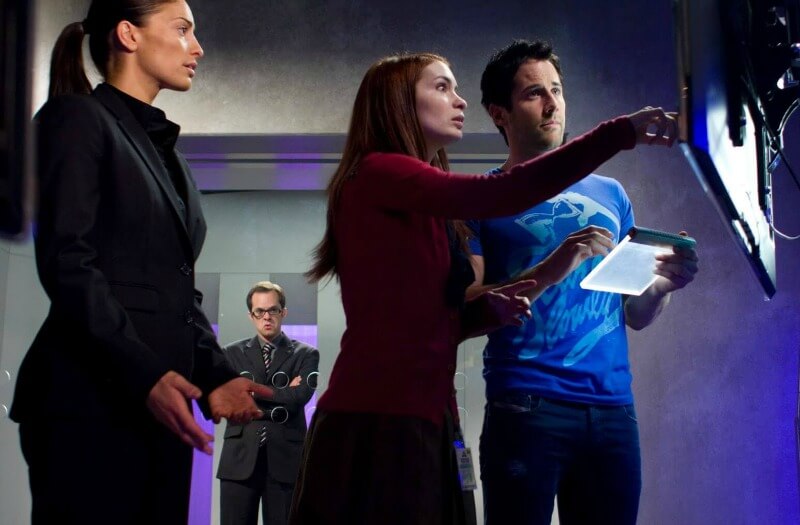
And yet, even I’ve learned to let myself ask what if. Which Eureka excels at – it’s odd and absurd and manages it plausibly. A town full of mad scientists allows room for semi-sentient houses and body swaps and little green men (which are neither aliens or the Hulk). Eureka teaches us to stretch our imaginations; not to be afraid of the ridiculous if you can find a way to pull it off.
Because the key to asking ‘what if’ is the consequence of it.
It’s not just ‘what if Santa showed up in a rocket powered sleigh’ it’s then how does a town of scientists deal with flying reindeer. What if a computer virus infected people like a biological virus? What if the man she loves is the only one who can save everyone? And then how do you live in the aftermath of his heroism?
It also isn’t just about outlandish sci-fi scenarios. What if the antagonist has a hidden motive? What if ninjas show up at the tea party? What if the hero hits the lunkhead and there’s a brawl? What question will push the story out of its expected trajectory?
I now like the ‘what if’ question because maybe you keep the scenario, maybe you don’t. But when you start exploring the consequences it can add layers to your conflict or your characters or take the story in a new direction.
Sometimes it’s just good for loosening up your brain and your creativity. Sometimes it’s the key to finding your plot.
Reinvent Your Story
This is probably more relevant in a series than a standalone story. And Eureka isn’t the only show to learn it from. Once Upon a Time reinvented itself a little every 13 episodes. Burn Notice reset itself with the turn of each season (or at least the seasons I watched). Eureka had a great (terrible!) reset. I’m not saying when or how. Or much of anything else. Except that it’s subtle and classy and smart.
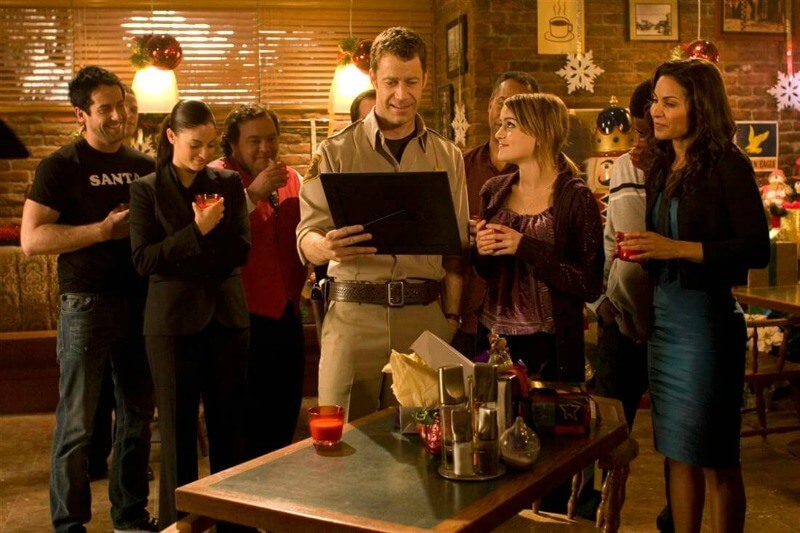
I am saying, if you want to see that it can be done, Eureka is a great show to study. Because it’s sci-fi it also does some mini-resets where they play with alternate versions of the story, then put it all back but the characters still have to deal with the repercussions. You can keep the characters that your readers love. Breathe new life into stale relationships. Shake up your nice and comfortable world. Stir up new and unexpected conflict.
Maybe you don’t need to reset your story to accomplish anything of those things. Maybe you’re just in the mood to turn everything on it’s head. Either way, don’t feel trapped by your own canon.
One note characters are the worst
This is reminiscent of a lesson from Haven. Don’t make one character always serve the same purpose in your story. Because one dimensional characters are ANNOYING.
Two examples: Allison Blake and Beverly Barlow (with vague spoilers…. be forewarned).
Beverly is really the worst. All she does is lie. Keep secrets. Manipulate people. Her purpose in the story is to create conflict. But when that’s all a character does, and it’s always the same character doing it, the story is boring and annoying. I’d have enjoyed Eureka even more if she’d never been in the story.
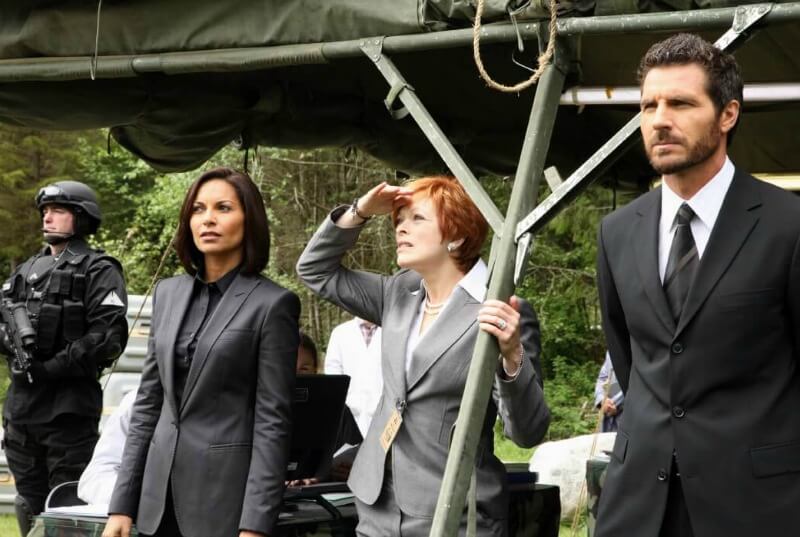
When Beverly leaves, Allison takes over the role of annoying troublemaker. She does it differently. Rather than lying and manipulating she’s all “It’s too risky. We CAN’T” which just causes more trouble. Or “We HAVE to shoot it down!” when everyone knows that’s a bad idea. If it was an episode here or there or if she traded the doomsday rant off with other characters then it’d probably work. But when it’s her entire role for a season and no one else shares the burden, it’s easy to want her off the show.
Nathan Stark is a prime counter example. He starts trouble. He helps out. Sometimes he’s all doomsday and sometimes he’s saving the day. He’s a dimensional character with multiple roles in the narrative. Which is why he’s amusing rather than annoying.
It’s easy to focus on creating conflict in your story – in making things go wrong to keep the story going. Just be careful you don’t always use the same character to throw the wrench in the gears simply because it’s easy. Pay attention, mix things up and give your troublemaker something else to do.
Make Something Bad Into Something Interesting
I stole this lesson from Once Upon a Time. I remembered it after I posted the 5 Essential Lessons from that show and felt like it would be lame to add it after the fact. I still might. But for now, here’s the lesson:
Make something bad lead to something interesting.
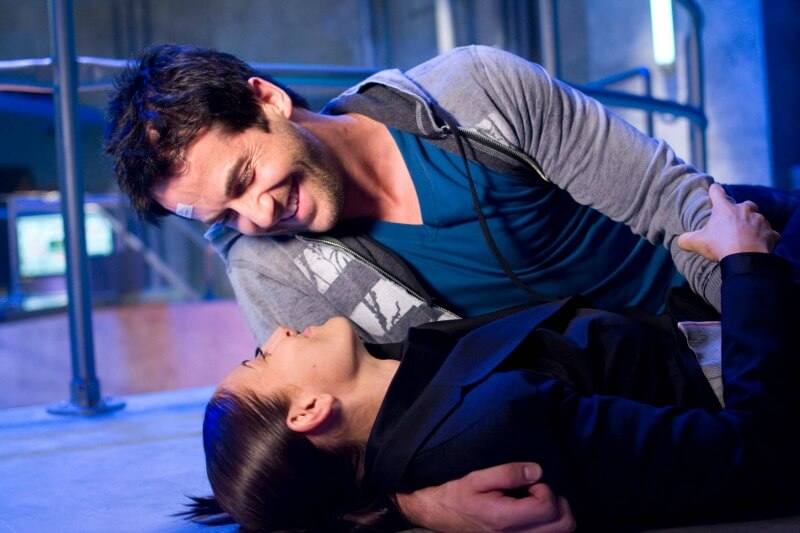
This is maybe my favorite writing lesson ever. It’s one I have not mastered by a long shot. Ok, maybe I haven’t even managed to pull it off at all. But I LOVE the idea of it.
Because I hate when bad things happen in stories. I get the need for conflict. But conflict isn’t necessarily the same as something bad – that thing that you think ruins the trajectory of the story. In Eureka, that’s Founder’s Day.
You think it’s all fun and games until it punches you in the gut. At first it’s awful. But it leads to some of the most interesting scenes of the series.
Readers will forgive an awful thing happening if it doesn’t just lead to gloom and doom and depression. Because I think emotionally we want to enjoy what we’re reading. And one great way to lift the story up out of gloom in the aftermath of something bad is to give the reader something really interesting. A great moment of romance or a great conversation, a twist in the relationship that wouldn’t have been possible without that difficult turn. Pair up unexpected characters to really connect so that it both deepens and furthers the story. Let that bad thing force your paired characters into a conversation they wouldn’t have otherwise. Be creative.
But if you have to (or even just want to) do something awful in your story, let it lead to something awesome.
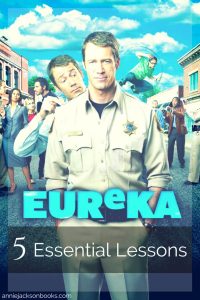
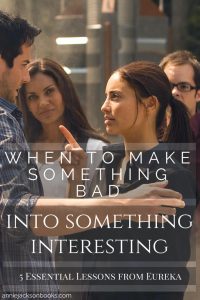
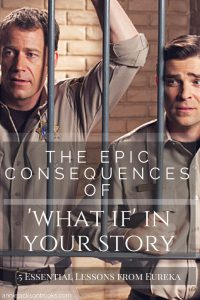
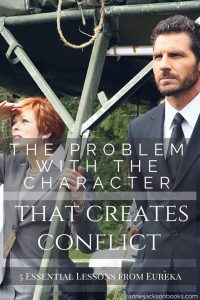
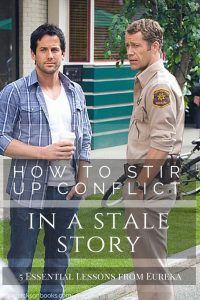
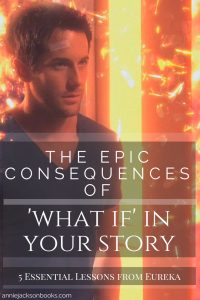
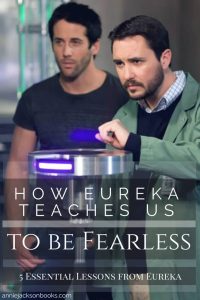
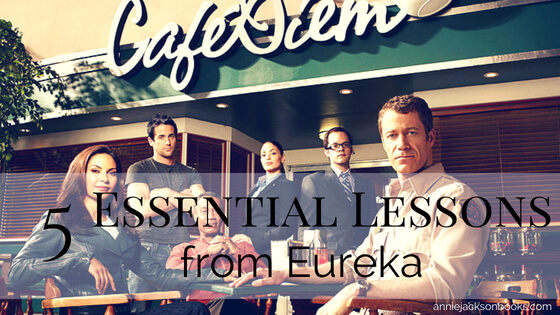
Hi, Annie! I was looking forward to reading this when I came across it. I agree that the first season or two were a bit slow and there wasn’t much to Allison initially, but “what if”! Founder’s Day was my favorite. I loved how they turned everything upside down.
I love Founder’s Day and how it changed everything! At first, when I was watching it live, I wasn’t thrilled. But a couple episodes in I decided I liked it ok. But then when I was rewatching the series on Amazon Prime I realized how reinvigorating it was to the series 🙂
Hi, Annie! Because of the 4th point. Why has to be just ONE character bad? Why shouldn’t an author be allowed to make everyone bad? Kinda an Anti-Hero. But the reader doesn’t recognize it by the first time. I’m sure you had one guy/girl at the school, who seems nice but turned out to be the biggest a$$h0le. I mean, nobody’s perfect. So, why should the protagonist be perfect?
I think authors are totally allowed to make everyone bad. But it would be more interesting if, in doing so, they didn’t make them all one dimensional. Good or bad, characters are always more interesting when they’re more than one thing and serve more than one purpose in the story. Disguising a character as positive and helpful force while they’re working against the the story goals definitely has potential to be interesting.